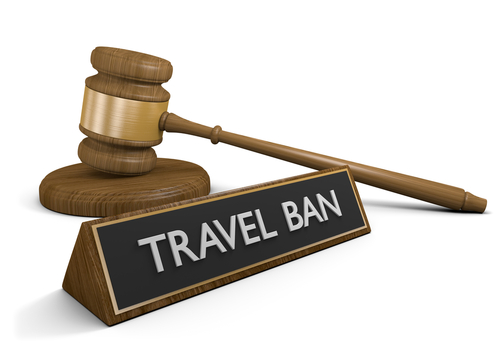Federal judge in Hawaii refuses to clarify which immigrants are temporarily exempt from travel ban

Shutterstock
A federal judge on Thursday refused Hawaii’s request to decide whether immigrants with grandparents and grandchildren in the United States are temporarily exempt from President Donald Trump’s revised travel ban.
U.S. District Judge Derrick Watson of Hawaii said that state should seek relief in the U.S. Supreme Court since it had partly lifted an injunction that had prevented the travel ban from taking effect, report LawFare, the Washington Post and the Associated Press. The decision is here (PDF).
The Supreme Court allowed the Trump administration to enforce its temporary ban on travel to the United States by people from six Muslim-majority countries – Iran, Libya, Somalia, Sudan, Syria and Yemen – with an exception. The temporary travel ban can’t be enforced against immigrants who have “a credible claim of a bona fide relationship” with a person or entity in the United States, the high court said.
After the decision, the Trump administration adopted guidelines that say immigrants are exempt from the ban if they have a close family member in the United States, defined as a parent (including an in-law), spouse, child (including an adult child), son- or daughter-in law, and sibling (including a stepsibling or half-sibling).
Under the guidelines, close family does not include a grandparent, grandchild, aunt, uncle, niece, nephew, cousin, and brother- or sister-in-law. The government initially said that close family did not include a fiancé, but later reversed itself, according to the Post.
Subsequent coverage: After 9th Circuit rejects travel ban appeal, Hawaii returns to district court
Updated July 11 to include link to subsequent coverage.



